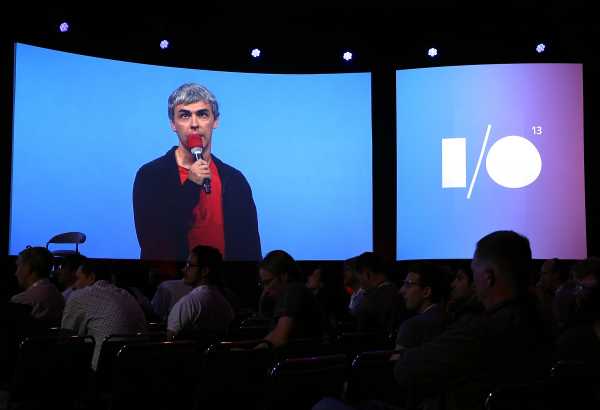
This story is part of a group of stories called

Uncovering and explaining how our digital world is changing — and changing us.
Google co-founder Larry Page no longer runs the company he helped create 21 years ago.
On Tuesday, Page announced that he’s handed the job to Sundar Pichai, who was already CEO of Google and is now also CEO of Alphabet, the parent company that Page had run for the last four years. Sergey Brin, Page’s co-founder, is also giving up his position as president of Alphabet.
Brin and Page will stay on Alphabet’s board, and they will keep control of the company via their ownership stakes.
If you don’t spend much time thinking about Google’s management, this will sound like a very big deal. And any time the co-founder of one of the world’s most powerful companies steps down from atop the org chart, it’s certainly worth noting.
On the other hand! It’s very hard to say that this will be meaningful for Google employees or anyone in the world who uses Google products. That’s because Page hasn’t been focused on Google’s core search advertising business for a very long time, and instead managed a portfolio of what the company called “Other Bets” — side businesses like Calico, a health tech company, and Waymo, its self-driving car venture.
But even when he was working on these projects, Page has been hard to spot outside of Google. It was Pichai, not Page, who represented Google in a Capitol Hill hearing a year ago, and it has been Pichai, not Page, who represented the company in high-profile interviews. Page’s highest-profile appearance in recent years may have been a video of him and Brin addressing employees after Donald Trump’s election in 2016, circulated by Breitbart News in 2018.
His absence has been felt within Google, too, according to current and former Google employees. Up until today, Page had a very small group of executives who reported directly to him, but if you weren’t on his “L team” you probably didn’t see him.
“Over time and particularly after the 2015 debut of Alphabet, Page’s official duties seem to have narrowed to a pinprick,” Bloomberg’s Shira Ovide noted in June, in a column titled “Where Is Larry Page? Alphabet Deserves Better.”
It’s possible we’ll find out there’s a very specific reason that Page and Brin — who had even less day-to-day input at the company than Page did — officially handed over the reins to Pichai right now.
It’s also true that now may not be the most pleasant time to run Alphabet in any form, as the company and the rest of the tech sector are under scrutiny from regulators in the US and around the world. Alphabet is also contending with a particularly vocal workforce, thousands of whom have walked out to protest the way the company has handled allegations of sexual misconduct by highly paid executives, and who have continued to protest within the company in the year since.
Those employees may still miss Page, even as they wish he was more present. Posts on Memegen, one of the company’s internal message boards, display “a mix of sadness and pointing out they are leaving during a difficult time in the company’s history,” says a Google employee.
“It feels like it’s just making official what was already obvious,” another Google employee told Recode, “We haven’t seen them in any all hands for ages as far as I remember.”
And in a reflection of how Page’s departure is not a major change for Google, Wall Street seems fine with the news. Alphabet shares have barely budged in after-hours trading following the company’s announcement.
Additional reporting by Shirin Ghaffary.
Sourse: vox.com






